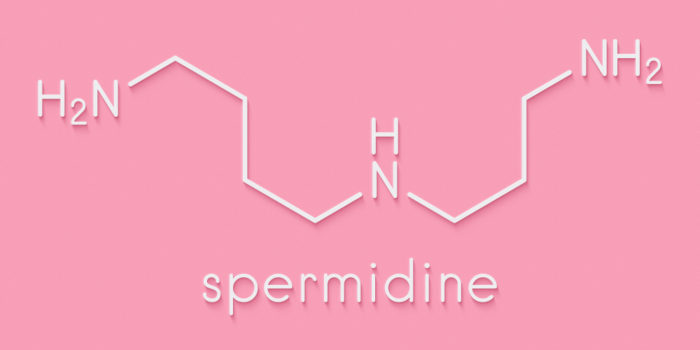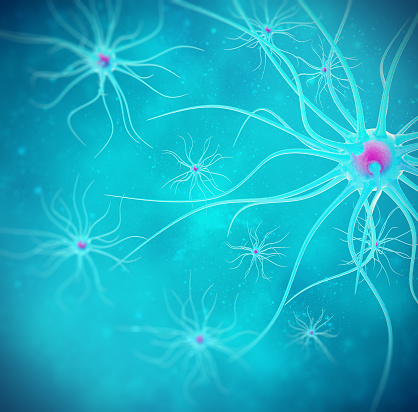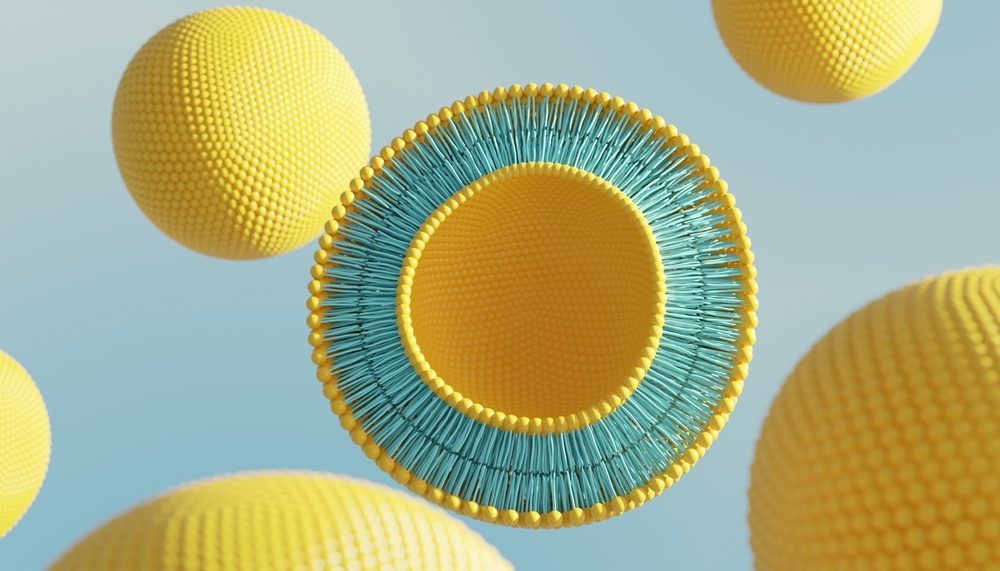
Spectacular Spermidine
May 3rd, 2022By Will Block
In Ancient Greece, Aristotle commented about the importance of semen. To the author of the ‘best-selling’ ancient books on morality, The Nicomachean Ethics, semen is:… the residue derived from nourishment, that is of blood, that has been highly concocted to the optimum temperature and substance. This can only be emitted by the male as only the male, by nature of his very being, has the requisite heat to concoct blood into semen.
The Nicomachean Ethics is a defense of the idea of eudaimonism (human flourishing or happiness) and was used, according to Aristotle to direct the connection between food and semen:
Sperms are the excretion of our food, or to put it more clearly, as the most perfect component of our food.
By the way, sperm is a part of semen, but semen isn’t a part of sperm.
An Autophagy Inducer
Foods that are high in spermidine, (a polyamine compound found in ribosomes and living tissues) can help induce a bodily function known as autophagy. Autophagy is the body’s process of replacing old, dying, or damaged cells with newer healthier cells. As you can imagine, this process is crucial for your overall wellbeing and can help increase your longevity.
Spermidine (SPD) also serves various metabolic functions within organisms and was originally isolated from semen. As a natural autophagy-promoting polyamine, it can be of great help for age-related memory. As a result, polyamines are associated with cell growth, aging, memory performance, neurodegenerative diseases, metabolic disorders, and cancer.
Spermidine Is Memory Food
| The female immune response is persuaded by signals in sperm to allow the male partner to fertilize her eggs and conceive a pregnancy. |
In 2018, a study was conducted to evaluate the impact of SPD supplementation on memory performance in older adults with subject cognitive decline.[i] This was the first human study to evaluate the impact of SPD for humans at risk for the development of Alzheimer’s disease. And it met success!
Memory performance was enhanced in the SPD group compared with placebo at the end of intervention. Thirty adults, aged 60-80, received for three months either a polyamine-rich plant extract each day or a placebo. This is the first human study to evaluate the impact of spermidine supplementation on memory performance in older adults at risk for the development of Alzheimer’s disease.
Triggering Dissolution of Amyloid
Previous spermidine studies have shown that spermidine can trigger the important process of dissolving amyloid-beta plaques by autophagy.[ii] (Figure 1). Blood results showed a significant correlation between the spermidine concentration and the mini-mental state examination. It can be concluded that spermidine might be suitable as a biomarker for the diagnosis of neurocognitive changes, (i.e., senile dementia or Alzheimer’s disease).
[i] Grittner U, Schmitz D, Sigrist SJ, et al. The effect of spermidine on memory performance in older adults at risk for dementia: A randomized controlled trial. Cortex. 2018 Dec;109:181-8.
[ii] Pekar T, Bruckner K, Pauschenwein-Frantsich S, et al. The positive effect of spermidine in older adults suffering from dementia. First results of a 3-month trial. Wien Klin Wochenschr. 2021 May;133(9-10):484-91.
Figure 1: A normal neuron compared to the development of amyloid plaques in the brain.
SPD is an endogenous biological polyamine that plays various longevity-extending roles and exerts antioxidative, antiaging, and cell growth-promoting effects. Spermidine improves memory performance in older adults at risk for the development of Alzheimer’s disease.
Persistence of Long-Term Memory
Recent evidence suggests that systemic SPD improves the persistence of the long-term memory of fear. In 2014, scientists found that it enhanced autophagy and is crucial for polyamine-induced suppression of necrosis and enhanced longevity.[i] Persistence is the most characteristic attribute of long-term memory.
Foods that contain SPD include soybeans, green peas, lentil soup, potatoes, chicken, pears, mushrooms, and in particular, aged cheese. Yet it is hardly possible to get the same amounts as supplied in the 2018 study through food, and certainly day after day, without suffering from diet boredom. And amounts do vary significantly in many foods. Recent spermidine supplements are principally derived from wheat germ (figure 2).
[i] Signor C, Mello CF, Porto GP, et al. Spermidine improves fear memory persistence. Eur J Pharmacol. 2014 May 5;730:72-6.
Figure 2: Spermidine supplements are extracted from wheat germ.
Spermidine Is a Longevity Elixir
SPD is a novel autophagy inducer and longevity elixir (in other words, Spermidine anti aging properties are an exciting development). It is a new longevity compound that can increase life span in yeast, nematodes, and flies, possibly through an effect on chromatin-mediated regulation of gene expression. The specific means by which autophagy targets specific proteins in the body has recently gained major attention due to the role of autophagy in human pathologies. It is here that specific proteinaceous cargo is insufficiently recruited to the autophagosome compartment, albeit functional autophagy activity. [i]
Reducing Idiopathic Pulmonary Fibrosis
Another study reported that SPD levels were significantly reduced in idiopathic pulmonary fibrosis (IPF) of the lung.[ii] This positive effect was related to the antiapoptotic downregulation of the ERS pathway, antisenescence effects, and autophagy activation. Findings suggest that SPD could be a therapeutic agent for IPF treatment.
The Importance of Autophagy
Among various studies, there is evidence that autophagy provides immunogenicity in older humans (figure 3) and that there are at least two novel drug targets that may increase vaccination efficiency in the aging context.[iii] SPD was involved in the regulation of salt tolerance through activating the expression of autophagy-related genes and the formation of autophagosomes in cucumber under salt stress.[iv]
It is a well-known autophagy inducer that maintains cellular and neuronal homeostasis. Furthermore, current studies highlight the ability of SPD to promote longevity by inducing autophagy. Thus, SPD can elicit an anti-inflammatory program driven by mtROS-dependent AMPK activation, hypoxia-inducible factor-1 stabilization, and autophagy induction in macrophages.
[i] de Wet S, Du Toit A, Loos B. Spermidine and rapamycin reveal distinct autophagy flux response and cargo receptor clearance profile. Cells. 2021 Jan 7;10(1):95.
[ii] Baek AR, Hong J, Song KS, et al. Spermidine attenuates bleomycin-induced lung fibrosis by inducing autophagy and inhibiting endoplasmic reticulum stress (ERS)-induced cell death in mice. Exp Mol Med. 2020 Dec;52(12):2034-45.
[iii] Alsaleh G Panse I, Swadling L, et al. Autophagy in T cells from aged donors is maintained by spermidine and correlates with function and vaccine responses. Elife. 2020 Dec 15;9:e57950.
[iv] Zhang Y, Wang Y, Wen W, et al. Hydrogen peroxide mediates spermidine-induced autophagy to alleviate salt stress in cucumber. Autophagy 2020 Nov 29;1-15.
Figure 3: The processes that autophagy can impact.
Adenosine 5′ monophosphate-activated protein kinase (AMPK) is an enzyme that is known as the body’s ‘master regulator of energy metabolism.’ Why? Because it works as an energy sensor within our cells. Researchers believe that as we age, AMPK activity significantly decreases. This is one reason why we experience changes in appetite, body weight, energy levels, etc.
Neuroprotection During Aging
New scientific results suggest that SPD may be beneficial for neuroprotection during aging and age-related disorders. As an autophagy inducer, SPD is a therapeutic strategy in neurological disorders.[i] SPD is a naturally occurring endogenous polyamine synthesized from the diamine putrescine.
Among the polyamines, SPD is found highest in the human brain. Age-linked fluctuations in the SPD levels may possibly contribute to the impairments in neural network and neurogenesis. Exogenously administered SPD helps in the treatment of brain diseases.
SPD and spermine delayed brain aging by inducing autophagy in SAMP8 mice.[ii] SPD and spermine have been reported to ameliorate aging and aging-induced dementia. Other results indicate that the effect of SPD and spermine on anti-aging is related with improving autophagy and mitochondrial function.[iii]
Spermidine Lessens Liver Injury
SPD ameliorates liver ischemia-reperfusion [IR] injury through the regulation of autophagy by the AMPK-mTOR-ULK1 signaling pathway. IR injury is a common clinical challenge lacking effective therapy. The aim of this study was to investigate whether SPD does have protective effects against hepatic IR injury through autophagy.
Results provide the first line of evidence that SPD provides protection against IR-induced injury in the liver by regulating autophagy through the AMPK-mTOR-ULK1 signaling pathway. These results suggest that SPD may be beneficial for hepatic IR injury.11 Also, SPD restores dysregulated autophagy and polyamine.
Spermidine Improves Osteoarthritis
Spermidine improves osteoarthritis (OA) because it restores aged and osteoarthritic chondrocytes via the gene EP300.[iv] It reinstates dysregulated autophagy and polyamine synthesis in aged and osteoarthritic chondrocytes via P300, the protein made by EP300.[v] SPD restores dysregulated autophagy and polyamine synthesis in aged and osteoarthritic chondrocytes via P300. SPD restores dysregulated autophagy and polyamine synthesis in aged and osteoarthritic chondrocytes via P300.
A painful joint photo
Continuing with restoration, SPD dysregulates autophagy and polyamine synthesis in aged and osteoarthritic chondrocytes via EP300.[vi]
Is SPD a physiological autophagy inducer acting as an antiaging vitamin in humans? SPD stimulates cytoprotective macro-autophagy/autophagy. External supplementation of SPD extends lifespan and healthspan across species, including in yeast, nematodes, flies, and mice. In humans, SPD levels decline with aging, and a possible connection between reduced endogenous SPD concentrations and age-related deterioration has been suggested.
Recent epidemiological data support this notion, showing that an increased uptake of this polyamine with SPD- and OA in chondrocytes may lead to improved treatment approaches to protect against cartilage degradation. SPD restores dysregulated autophagy and polyamine synthesis in aged and osteoarthritis (OA) chondrocytes via EP300.[vii] Aging is the primary risk factor for OA.
Intervertebral Disc Degeneration
Autophagy has been found to mitigate cell apoptosis in intervertebral disc degeneration (IDD). Thus, SPD protects nucleus pulposus cells against apoptosis through autophagy activation and improves disc, which may be beneficial for the treatment of IDD.
SPD coupled with exercise rescues skeletal muscle atrophy from D-gal-induced aging rats through enhanced autophagy and reduced apoptosis via the AMPK-FOXO3a signal pathway.[viii]
Spermidine inhibits lipid accumulation and necrotic core formation through stimulation of cholesterol efflux, albeit without changing plaque size or cellular composition. These effects, which are driven by autophagy in human vascular smooth muscle cells (VSMC), support the general idea that autophagy induction is potentially useful to prevent vascular disease.
SPD Reverses Arterial Aging
The autophagy enhancer spermidine reverses arterial aging.[ix] Arterial aging, characterized by stiffening of large elastic arteries and the development of arterial endothelial dysfunction, increases cardiovascular disease (CVD) risk. Upon testing the hypothesis that SPD would improve arterial aging, scientists have found that SPD exerts a potent antiaging influence on arteries by increasing nitric oxide bioavailability, reducing oxidative stress, modifying structural factors, and enhancing autophagy. SPD may be a promising nutraceutical treatment for arterial aging and prevention of age-associated CVD.[x]
SPD promotes stress resistance in Drosophila melanogaster through autophagy-dependent and independent pathways.[xi] The naturally occurring polyamine SPD has recently been shown to promote longevity across species in an autophagy-dependent manner.[xii]
SPD may decrease ER stress in pancreatic beta cells and may reduce apoptosis via activating AMPK dependent autophagy pathway.[xiii]
SPD and resveratrol, (an important antioxidant polyphenol), induce autophagy by distinct pathways converging on the acetylproteome.[xiv] Autophagy mediates pharmacological lifespan extension by SPD and resveratrol. Given that polyamines in general and SPD are endogenous metabolites, our findings place them as candidate target substances for age-induced memory impairment (AMI) treatment.
Autophagy protects organelles, cells, and organisms against several stress conditions. Induction of autophagy by resveratrol requires nicotinamide adenine dinucleotide-dependent deacetylase sirtuin 1 (SIRT1).[xv] In this paper, it is shown that the acetylase inhibitor SPD stimulates autophagy independent of SIRT1 in human and yeast cells as well as in nematodes. Autophagy protects organelles, cells, and organisms against several stress conditions. Induction of autophagy by resveratrol requires the nicotinamide adenine dinucleotide dependent SIRT1.
Spermidine Stimulates Autophagy
In a 2009 paper, it is shown that the acetylase inhibitor SPD stimulates autophagy independent of SIRT1 in human and yeast cells as well as in nematodes. Doses with resveratrol or SPD alone do not produce autophagy, but synergistically they can. Altogether, the data from this study underscores the importance of an autophagy regulatory network of antagonistic deacetylases and acetylases that can be pharmacologically manipulated.
Autophagy mediates lifespan extension by Spermidine and Resveratrol.[xvi]
Although autophagy has widely been conceived as a self-destructive mechanism that causes cell death, accumulating evidence suggests that autophagy usually mediates cyto-protection, thereby avoiding the apoptotic or necrotic demise of stressed cells.
Recent evidence demonstrates that autophagy is also involved in pharmacological manipulations that increase longevity. [xvii]
Exogenous supply of SPD prolongs the life span of several model organisms including yeast (Saccharomyces cerevisiae), nematodes (Caenorhabditis elegans) and flies (Drosophila melanogaster) and significantly reduces age-related oxidative protein damage in mice, indicating that this agent may act as a universal antiaging drug.
Induction of autophagy by spermidine promotes longevity.[xviii] Aging results from complex genetically and epigenetically programmed processes that are elicited in part by noxious or stressful events that cause programmed cell death.
It was found that enhanced autophagy is crucial for polyamine-induced suppression of necrosis and enhanced longevity. Aging is associated with an increased risk of cardiovascular disease and death.[xix] In humans, high levels of dietary spermidine, as assessed from food questionnaires, correlated with reduced blood pressure and a lower incidence of cardiovascular disease. These results suggest a new and feasible strategy for the protection from cardiovascular disease.
Aged Mice and Hair Loss
Scientists have shown that a 6-month administration of SPD in the drinking water of aged mice is sufficient to significantly attenuate distinct age-associated phenotypes loss. These include modulation of brain glucose metabolism, suppression of distinct cardiac inflammation parameters, decreased number of pathological sights in kidney and liver, and decrease of age-induced hair loss.
Spermidine and Fat Loss
In male mice, dietary sucrose and fat caused diverse metabolic and microbiota changes that were differentially susceptible to physical exercise.[xx] SPD has the potential to augment activity-induced beneficial effects, particularly for sucrose-induced obesity.
Need More Spermidine with Age
While spermidine is beneficial at any age, it becomes even more important as you age. A 2006 study published in the Journal of Biochemistry[xxi] measured changes in polyamine levels during aging by using 2-, 10- and 26-week-old female mice. Notably, the polyamine levels in the brain, pancreas and uterus remained the same for all three age groups.
The amount of spermidine found in the intestine decreased slightly and fell significantly in the heart, kidney, liver, lung, ovary, spleen, stomach, and thymus, as well as muscle.
In the skin, the level of spermidine was maximal in 10-week-old mice and markedly reduced in the 26-week-old group. The study authors asserted, “The results suggest maintenance of polyamine levels may play important roles in the function of the pancreas, brain and uterus in 3- to 26-week-old mice.”
In humans, the reality is that cell growth slows dramatically without polyamine synthesis. In fact, with age, cell growth could stop unless you consume foods or supplements containing polyamines which also have been shown to help hair-loss conditions. As you can imagine, if you’re not growing new cells, your tissues and organs will begin to deteriorate, accelerating aging. That is why it is important to obtain enough spermidine and other polyamines in your daily diet and now spermidine supplements have become available recently to help us do just that.
References
[i] Ghosh I, Sankhe R, Mudgal J, et al. Spermidine, an autophagy inducer, as a therapeutic strategy in neurological disorders. Neuropeptides. 2020 Oct;83:102083.
[ii] Xu T, Li H, Dai Z, et al. Spermidine and spermine delay brain aging by inducing autophagy in SAMP8 mice. Aging (Albany NY). 2020 Apr 8;12(7):6401-14.
[iii] Liu H, Dong J, Song S, et al. Spermidine ameliorates liver ischemia-reperfusion injury through the regulation of autophagy by the AMPK-mTOR-ULK1 signaling pathway. Biochem Biophys Res Commun. 2019 Nov 5;519(2):227-33.
[iv] Borzì RM, Cetrullo S, D’Adamo S, et al. Spermidine restores dysregulated autophagy and polyamine synthesis in aged and osteoarthritic chondrocytes via EP300. aged and osteoarthritic chondrocytes via EP300. Exp Mol Med. 2019 Mar 1;51(3):1-2.
[v] Sacitharan PK, Gharios GB, Edwards JR, et al. Spermidine restores dysregulated autophagy and polyamine synthesis in aged and osteoarthritic chondrocytes via EP300: response to correspondence by Borzì et al. Exp Mol Med. 2019 Mar 1;51(3):1-2.
[vi] Sacitharan PK, Lwin S, Gharios GB, Edwards JR. SPD restores dysregulated autophagy and polyamine synthesis in aged and osteoarthritic chondrocytes via EP300. Exp Mol Med. 2018 Sep 19;50(9):1-10.
[vii] Zheng Z, Wang ZG, Chen Y, et al. Spermidine promotes nucleus pulposus autophagy as a protective mechanism against apoptosis and ameliorates disc degeneration. J Cell Mol Med. 2018 Jun;22(6):3doi: 10.1111/jcmm.13586. Epub 2018 Mar.
[viii] Fan J, Yang X, Li J, et al. Spermidine coupled with exercise rescues skeletal muscle atrophy from D-gal-induced aging rats through enhanced autophagy and reduced apoptosis via AMPK-FOXO3a signal pathway. Oncotarget. 2017 Mar 14;8(11):17475-90.
[ix] LaRocca TJ, Gioscia-Ryan RA, Hearon Jr CM, et al. The autophagy enhancer spermidine reverses arterial aging. Mech Ageing Dev. Jul-Aug 2013;134(7-8):314-20.
[x] Sigrist SJ, Carmona-Gutierrez D, Gupta VK, et al.N Spermidine-triggered autophagy ameliorates memory during aging. Autophagy. 2014 Jan;10(1):178-9.
[xi] Pietrocola F, Lachkar S, Enot DP, et al. Spermidine induces autophagy by inhibiting the acetyltransferase EP300. Cell Death Differ. 2015 Mar;22(3):509-16.
[xii] N Minois B, Carmona-Gutierrez D, Bauer MA, et al. Spermidine promotes stress resistance in Drosophila melanogaster through autophagy-dependent and -independent pathways. Cell Death Dis. 2012 Oct 11;3(10):e401.
[xiii] Tirupathi PB, Suriyakalaa U, Kamalakkannan S, et al. Spermidine may decrease ER stress in pancreatic beta cells and may reduce apoptosis via activating AMPK dependent autophagy pathway. Med Hypotheses 2011 Oct;77(4):677-9.
[xiv] Morselli E , Mariño G, Bennetzen MV, et al. Spermidine and resveratrol induce autophagy by distinct pathways converging on the acetylproteome. J Cell Biol. 2011 Feb 21;192(4):615-29.
[xv] Borzì RM, Cetrullo S, D’Adamo S, et al. Spermidine restores dysregulated autophagy and polyamine synthesis in aged and osteoarthritic chondrocytes via EP300. aged and osteoarthritic chondrocytes via EP300. Exp Mol Med. 2019 Mar 1;51(3):1-2
[xvi]Morselli E, Galluzzi L, Kepp O, et al. Autophagy mediates pharmacological lifespan extension by spermidine and resveratrol. Aging (Albany NY). 2009 Dec 23;1(12):961-70.
[xviii]Eisenberg T, Abdellatif M, Schroeder S. Cardio-protection, and lifespan extension by the natural polyamine SPD. Nat Med. 2016 Dec;22(12):1428-38.
[xix] Kaeberlein M. Spermidine surprise for a long life. Nat Cell Biol. 2009 Nov;11(11):1277-8.
[xx] Schipke J, Vital M, Schnapper-Isl A, et al. Spermidine and voluntary activity exert differential effects on sucrose- compared with fat-induced systemic changes in male mice. J Nutr. 2019 Mar 1;149(3):451-62.
[xxi]Nishimura K, Shiina R, Kashiwagi K. et al. Decrease in polyamines with aging and their ingestion from food and drink. J Biochem. 2006 Jan;139(1):81-90.








